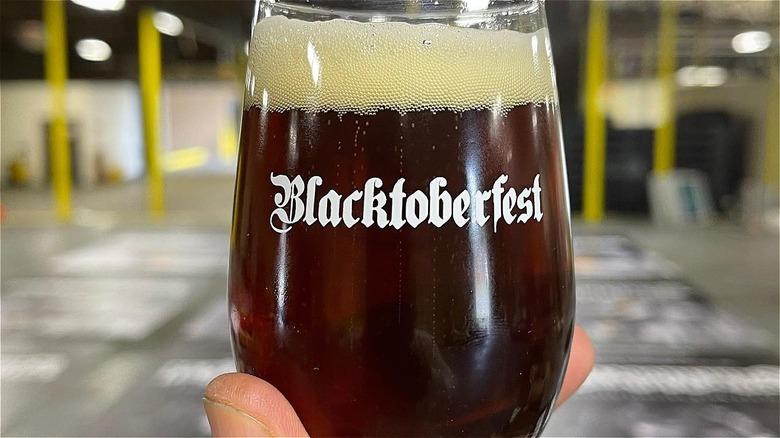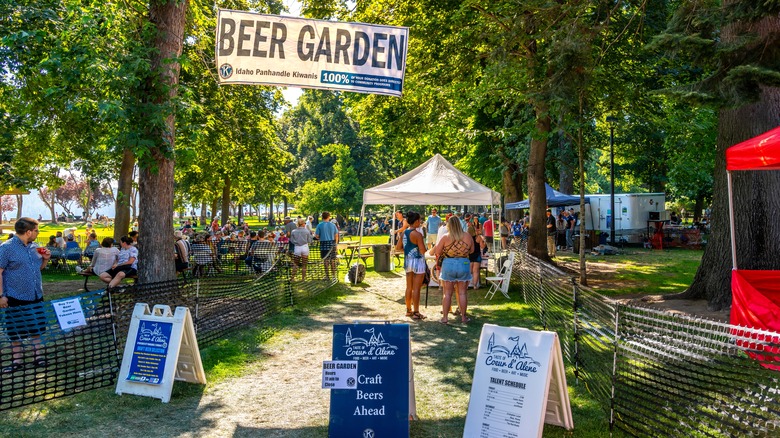Blacktoberfest Is Back For 2022. Here's Everything We Know
Blacktoberfest is far more than a play on Oktoberfest. Its origins trace back to the United States' first-ever Black beer festival, Fresh Fest, which began in Pittsburgh in 2018 (per Thrillist). "It was the most diverse craft beer festival I'd ever seen. ... To see a crowd that was every bit as enthusiastic about craft beer as crowds at other beer festivals, but 70% or so African American. People were speaking to each other like family," Garrett Oliver said to App of the second annual event. Oliver is the owner of Brooklyn Brewery, which was one of the first Black breweries in the United States. Unfortunately, the festival, spearheaded by Ed Bailey, Day Bracey, and Mike Potter, faced disagreements that led to a split, birthing Blacktoberfest in the process.
In 2020, the first Blacktoberfest events took place in North Carolina, Los Angeles, and South Africa. Per its website, the festival is intended to shine the spotlight on more than 100 Black-owned breweries and businesses while also incorporating festival-style booths. This year, the festival is making its return, and it has a few changes on the way.
New locations have been added
For 2022, Blacktoberfest will be popping up in three different cities: St. Louis, Missouri, on October 1; Atlanta on October 15; and Durham, North Carolina, on October 22. The St. Louis event will take place at the Page of Carter Commons, which is home to a community kitchen as well as Black-owned businesses such as Girlfriend's Closet and Burn 365 Fitness. In Atlanta, the festival will be held at Hippin' Hops Breweries' new 11,000-square-foot facility, and in Durham, it's taking place at the Suite Four at Durham Bottling Company — a building with nine event spaces commemorating music, art, food, and beer.
"We wanted to create a tradition and venue that would allow people of all cultures to enjoy food and beer that was created by Black people," Mike Potter said to Cuisine Noir Mag. "We have a deep rich cultural connection to brewing and cooking, and there are not enough opportunities for us to showcase the results of these amazing skills." Only 1% of U.S. breweries are Black-owned, and many of these businesses have been eager for the chance to promote their craft.
Potter was hoping that Blacktoberfest would create a space not only for Black brewers, but also people in art, food, and entertainment — resulting in circular economics that would benefit Black professionals and consumers at large. "We wanted to create a template for what a circular economy would look like within the craft beer industry. Many of us as Black brewers and industry professionals often talk about not having a 'seat at the table,' and rightfully so," he said.
Tickets and merchandise can be purchased from Blacktoberfest's website.

